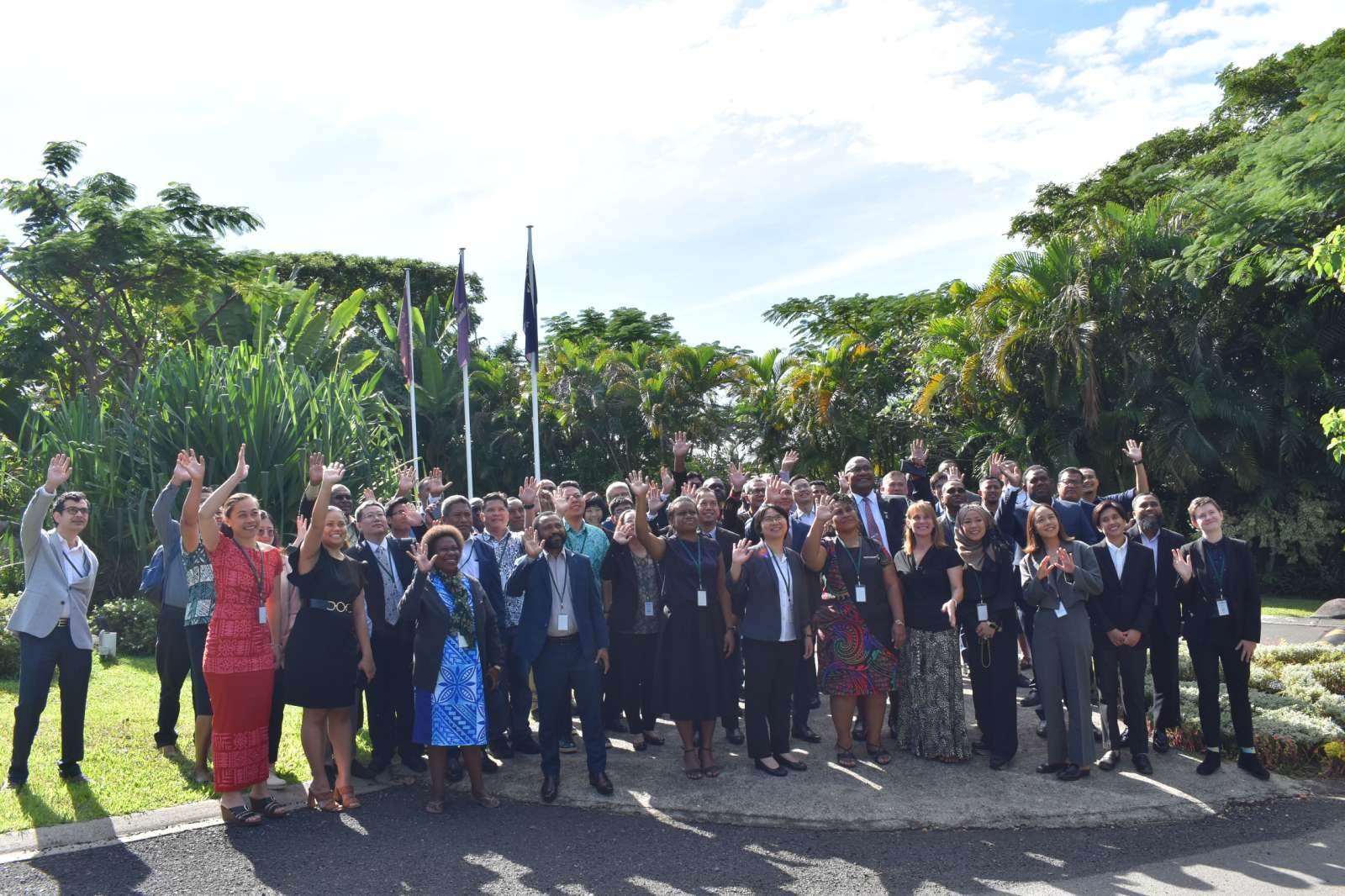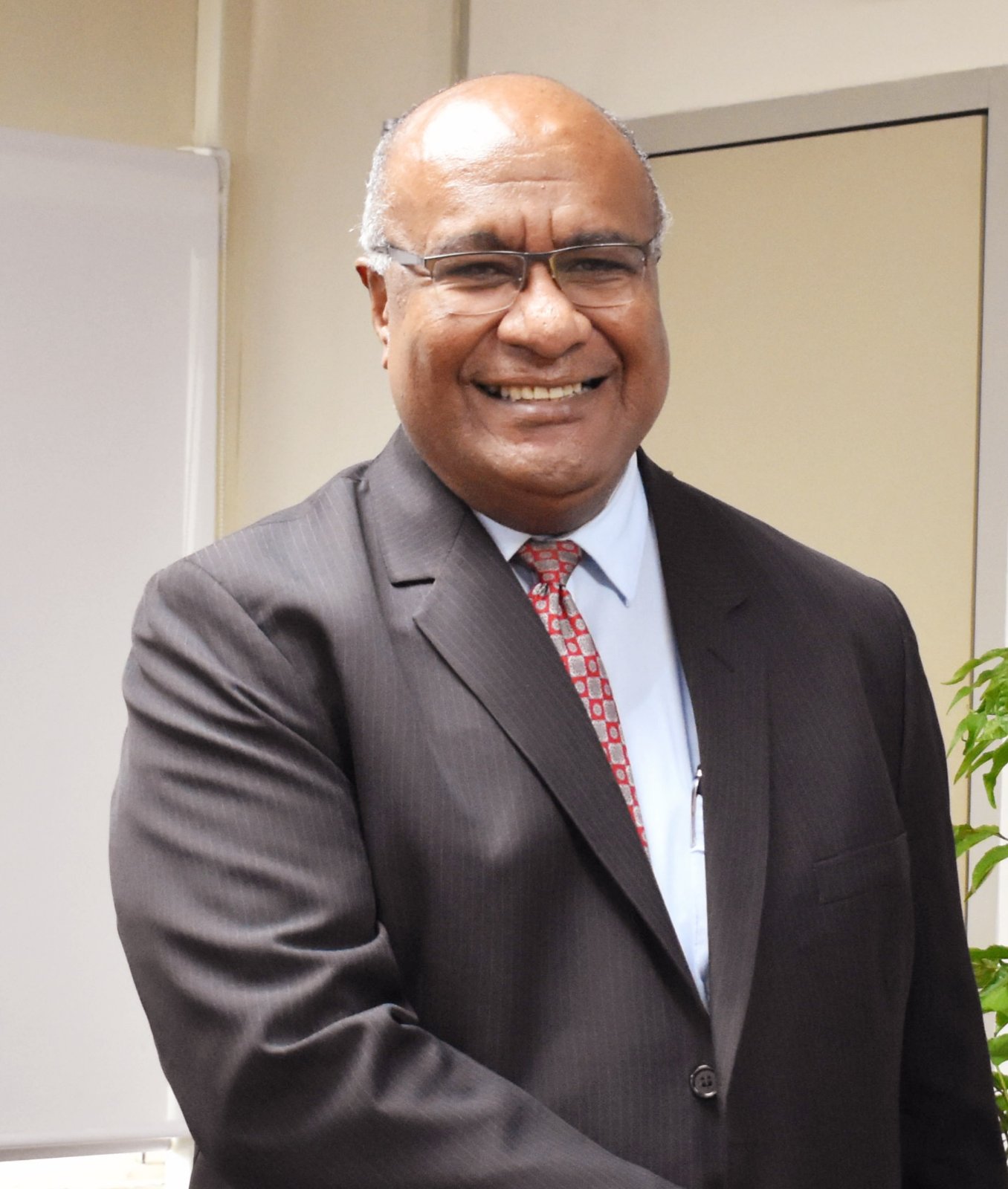Secretary-General of the Asia Pacific Telecommunity, Excellency Masanori Kondo,
The Forum Chair, Mr. Ilyas Ahmed,
Vice-Chairs, Ms. Thasawan Samorwong and Mr. Brian Winji,
Excellencies,
Distinguished Delegates of the PRF-23, both joining virtually and in-person,
Ladies and Gentlemen,
- Bula Vinaka and good morning, good afternoon, and good evening — for those tuning in virtually. As the minister overseeing information and communications technology, it gives me great pleasure to see fellow ministers, senior government officials, regulatory heads and leaders from the technology industry gathered at this Forum.
- Fiji values the role that APT plays in enhancing visibility of our regionally shared goals, priorities and challenges. And that is why this Forum is important because it gives us the opportunity to discuss, engage with and learn from each other, consolidate our common positions, and drive our collective priorities.
- The ever- evolving nature of digital technologies has greatly impacted and continues to influence how people interact, how businesses operate, and economies are configured. In today’s interconnected world, digital and technical capabilities are essential drivers of socio-economic development. It provides opportunities for businesses to expand their reach, access new markets, and increase productivity.
- For citizens, digital technologies offer a more convenient, efficient and transparent way of accessing services and engaging with their government. It has also encouraged individuals and communities to participate in the digital economy. And this has also presented challenges on how Government operates in ensuring that we are providing an inclusive, resilient, secure, and enabling ICT ecosystem.
- Like other countries, the Government of Fiji is dedicated to enhancing its digital ecosystem in order to facilitate economic growth through strategic and multistakeholder partnerships, fostering digital entrepreneurship, promoting e-commerce, developing digital skills, and embarking on smart island initiative. I’d like to focus on several key thematic areas:
Connectivity and Digital Inclusion
- The International Telecommunications Union (ITU) estimates that about 2.7 billion people globally do not have access to the online world. Compared to previous years, the digital gap has decreased — however, there is still much work to be done in enhancing connectivity. Today, Fiji has a robust and modern network infrastructure that allows businesses to communicate and collaborate remotely, improving productivity and efficiency. This is underpinned by the deregulation of the telecommunications market, installation of fiber optic cables for international connectivity, the expansion of 4G cellular networks, the development of wireless broadband internet service, and the recent onset of 5G trials. The building of a second submarine cable landing station in Fiji is also underway and will cement our resiliency. Today, 95 percent of our people have access to mobile broadband using 3G, 4G and 4G+ networks. And we are committed to connecting the remaining 5% of our people who live in remote and maritime communities.
- As part of our connectivity efforts, Fiji’s joined the ITU Smart Islands Initiative and we have recently completed our needs assessment. We have identified Rotuma, a volcanic island of approximately 43 sq. kilometers with less than 2000 people and located 590km from Nadi – for this initiative. I am excited to see the innovative approach to deliver connectivity and new ICT-enabled services on one of our smaller maritime communities.
- The accelerated adoption of digital technologies has resulted in significant growth in eCommerce and mobile financial transactions and the growth of the Business Process Outsourcing industry which thrived during the COVID-19 pandemic. The use of mobile e-wallets continue to experience exponential growth driven by bulk disbursements by Government and other institutions, inward remittances through the channel and surging customer demand for the service as reflected by cash deposits and payments. Last month, Vodafone Fiji achieved a milestone in launching the M-PAISA Mastercard which is globally accepted payment platform allowing users to be able to make online and overseas payment.
Digital Transformation and Digital Trust
- We are mindful that the correct implementation of digital transformation ensures that tailored e-services are delivered with the aim of enhancing efficiency, transparency, and accessibility. This is especially challenging when silos have been created, archaic legislation still in place, out-of-date policy and regulatory frameworks, outdated systems that are not interoperable, and constrained resource. So, under our digitalisation efforts, we focused on key government services which also looked after key people and entity data that have a national impact.
- Data-based policy and regulatory decisions are a key component in driving tailored and targeted support. We undertook business process re-engineering exercises, streamlined processes, built a multidisciplinary team dedicated to digital government transformation and rolled out e-services. Through the implementation of digital platforms and online services, we have streamlined processes and improved service delivery which enables users to register births, apply for and retrieve birth certificates, and undertake entity-related processes – from name reservation to company cessation, fully online.
- This is an ongoing journey and we have identified areas where we can further innovate and are looking into that. These efforts have contributed to Fiji advancing to a higher Govtech maturity index grouping demonstrating significant focus on GovTech, despite the COVID-19 pandemic challenges, according to a recently released World Bank study.
- This digital ecosystem that we are all creating relies on accurate data and this has been an area of focus for Fiji. The Data Exchange Platform (DXP) is an integral part of Fiji’s digital transformation journey and provides for a single source of truth — good quality and trusted data needed to enable government services to be accessible from anywhere in the world and at any time. This data-sharing platform is built on a strong data governance and data management framework.
- The Fiji Government is embarking on Fiji Integrated Licensing and Permit Approval System (FILPAS), in an effort to digitalise government services related to doing business. We are taking head of starting a business and obtaining construction permits. Two critical areas where investments are realised. Following these two important reforms, the Fiji Govt will bring other services onto the FILPA platform. FLIPA is morale on Singapore integrated approval platform.
Cybersecurity
- With all the benefits and the opportunities of the digital world, it does increase the cyber threat landscape. We have all seen the spate of high-profile malicious cyber activities and these are becoming more sophisticated, multi-faceted and recuring in nature. That is why we need to put in place policy, regulatory, technical, and legal safeguards to protect our people and businesses.
- As a matter of priority, we are finalising our national Computer Emergency Response Team Study. We are also in the process of reviewing our 2015 National Cybersecurity Strategy due to new and emerging cyber threats. We have the Online Safety Act promotes online safety to increase awareness and education on responsible online behaviour and the use and provision of personal information. We also have the Cybercrime Act which is aligned to the Budapest Convention on Cybercrime. We are also partnering with the Council of Europe to develop tailored capacity building programmes to combat cybercrime with the upcoming GLACY-E programme.
- Given the transboundary nature of cyberspace, it is crucial that we are part of the global ICT discussions in order to foster a secure, peaceful, stable and interoperable cyberspace. Next month, the UN Open Ended Working Group will be negotiating the Annual Progress Report which is to be presented to the General Assembly and which will serve as a roadmap for further negotiations on the role of responsible state behaviour in cyberspace.
- There is much work ahead of us however this presents a unique opportunity to deliver inclusive digital development that leaves no one behind. I am convinced that together, we can build a safe, resilient, accessible, and interoperable cyber space. I wish you well in your deliberations in the sessions today and tomorrow and look forward to meeting with you all.
- Fiji Government’s priority to create a modern public and private sector environment, by enhancing technology and ICT, that promotes business and growth, particularly in MSMEs and streamline the development of crucial sectors of the economy such as financial services and trade and investment. With the cooperation and partnership of APT and its members, we are confident that we will realise our ambition.
Vinaka and Thank you.



